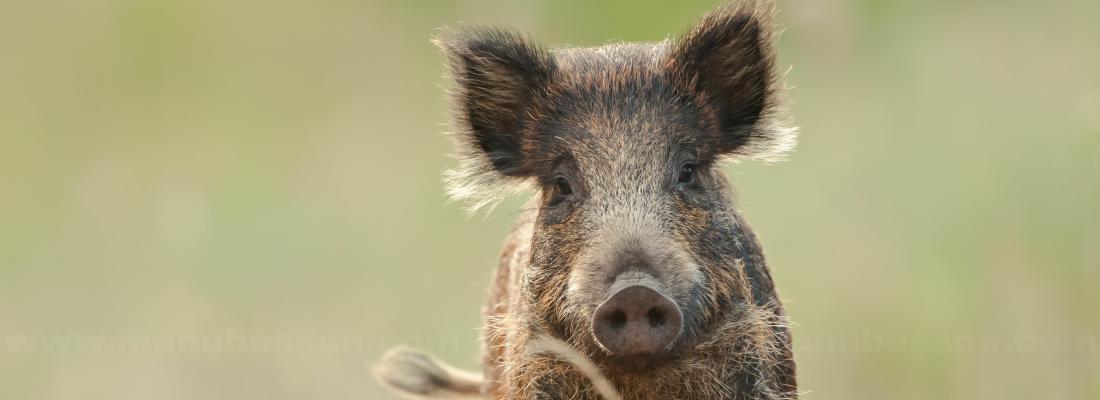Biodiversity Reading time 2 min
Wild boars as a reservoir of new pathogenic bacteria
Published on 11 January 2022

Monitoring the health of wild boars to protect the health of farmed pigs is one way to prevent swine epidemics. This is supported by the results of a study led by scientists from INRAE, ENVT and the Université de Toulouse, published on 11 January 2022 in the journal Emerging Infectious Diseases.
As a starting point, an abnormally high death rate among wild boars was observed in several departments of Metropolitan France. Preliminary research showed that these boars succumbed to a bacterial infection caused by a particular strain of Escherichia coli (E. coli). This caused oedema disease that was fatal in animals, via a Shiga toxin: Stx2e. Common in pig farming, this bacterium had never been found in its close cousin, the wild boar.
A team involving several research institutes2 then began to study the bacterial strains involved in detail. Scientists sequenced the genome of the bacteria collected from different sites. The verdict? The strain responsible, though close to those found in pig farms, is new and corresponds to a hybrid of two strains of E. coli. For the time being, it is only circulating in wild animals and does not display any antibiotic resistance genes – a common feature of bacteria from livestock farms. This is the first time that a hyper-virulent strain of E. coli of this kind has appeared in wildlife. However, scientists are reassuring – this bacterium is not normally pathogenic in humans. It is, however, transmissible to domestic pig farms.
This research sheds light on the plasticity of bacterial genomes, and on the role of wildlife as a reservoir of new pathogens. It reinforces the support provided to livestock farmers in the form of the Biosecurity-animal welfare pact1, and highlights the need to develop wildlife monitoring programmes.
1 https://agriculture.gouv.fr/pacte-bio-securite-bien-etre-animal-en-elevage (in French)
2 Institut de recherche en santé digestive (IRSD – Inserm/INRAE/ENVT/UT3 Paul Sabatier)
Reference
Suggested citation for this article: Perrat A, Branchu P, Decors A, Turci S, Bayon-Auboyer M-H, Petit G, et al. Wild boars as reservoir of highly virulent clone of hybrid Shiga toxigenic and enterotoxigenic Escherichia coli responsible for edema disease, France. Emerg Infect Dis. 2022 Dec [date cited]. https://doi.org/10.3201/eid2802.211491
